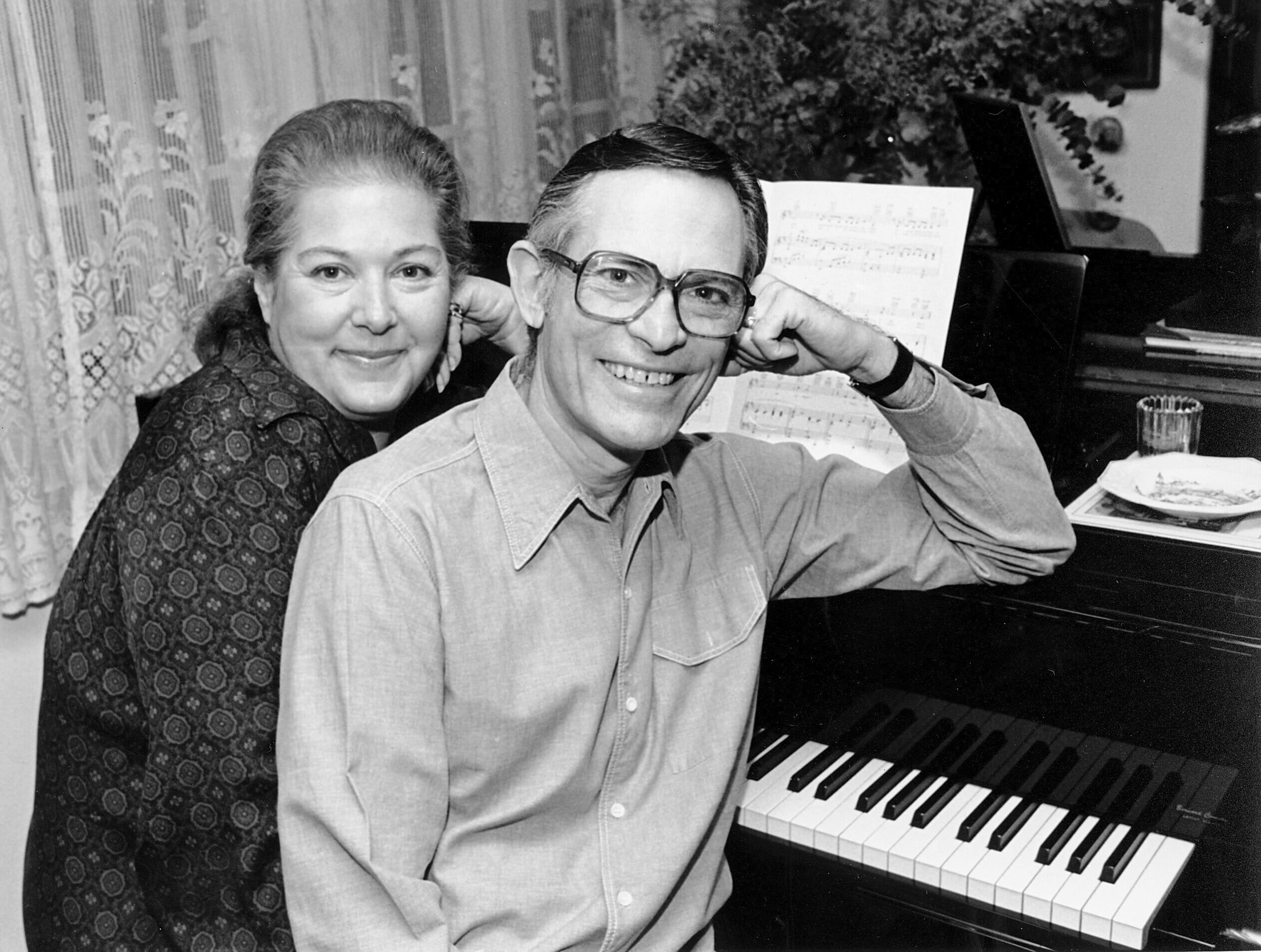A Legacy of Love and Lyricism
Alan Bergman, the Oscar-winning lyricist who collaborated with his wife, Marilyn, in a long-lasting and deeply affectionate partnership, has passed away at the age of 99. Together, they created timeless songs that have become part of the American musical landscape, including “How Do You Keep the Music Playing?,” “It Might Be You,” and the iconic “The Way We Were.” His passing marks the end of an era for music lovers around the world.
Bergman died at his home in Los Angeles, as confirmed by his family spokesperson, Ken Sunshine. The statement noted that he had been dealing with respiratory issues in recent months but continued to write songs until the very end. His dedication to his craft remained unwavering even in his final days.
Alan and Marilyn Bergman married in 1958 and remained together until her death in 2022. Their partnership was one of the most successful and influential in the history of songwriting. They worked with some of the greatest names in music, including Marvin Hamlisch, Quincy Jones, Michel Legrand, and Cy Coleman. Together, they contributed words and occasional music to hundreds of songs, many of which became synonymous with the films and artists they were associated with.
Frank Sinatra, Michael Jackson, Tony Bennett, and Barbra Streisand all performed their work, with Streisand becoming a close collaborator and friend. Her rendition of “The Way We Were” remains one of the most beloved songs of all time.
Despite his passing, there are plans for a centennial celebration of Alan Bergman at Santa Monica’s Broad Stage. Guests such as Michael Feinstein, Jackson Browne, and Patti Austin are expected to attend. Feinstein, among many artists who paid tribute, described the Bergmans as “kind, talented, and principled artists” who “lived from a place called Love.”
Iconic Works and Enduring Influence
The Bergmans’ ability to blend Tin Pan Alley sentiment with contemporary pop made them stand out in the industry. Their lyrics resonated with millions, often without the public knowing the names of the writers behind them. Some of their most famous works include the duet “You Don’t Bring Me Flowers” by Barbra Streisand and Neil Diamond, the Sinatra classic “Nice ’n’ Easy,” and the themes for the 1970s sitcoms “Maude” and “Good Times.”
Their film compositions included Ray Charles’ “In the Heat of the Night” from the movie of the same name, Noel Harrison’s “The Windmills of Your Mind” from “The Thomas Crown Affair,” and Stephen Bishop’s “It Might Be You” from “Tootsie.” Among their most celebrated works is “The Way We Were,” which became a defining song of the 1970s. Recorded by Barbra Streisand for the 1973 film of the same name, it features one of the most famous opening lines in music history: “Memories / light the corners of my mind / misty watercolor memories / of the way we were.”
“The Way We Were” was the top-selling song of 1974 and earned the Bergmans one of their three Oscars. They also won for “Windmills of Your Mind” and the soundtrack to “Yentl,” the 1983 film directed by Barbra Streisand. At times, the Academy Awards felt like a Bergman showcase, with three of the best song nominees in 1983 featuring their lyrics. In total, they received 16 Oscar nominations.
Recognition and Personal Connection
Beyond the Oscars, the Bergmans received two Grammys, four Emmys, and numerous lifetime achievement awards. Barbra Streisand honored them with her 2011 album, “What Matters Most,” which featured their songs. Bergman also recorded his own vocal version of “Lyrically, Alan Bergman.” Although best known for their film work, they also wrote the Broadway musical “Ballroom” and provided lyrics for the symphony “Visions of America.”
Their lives seemed to be written in rhyme. Born in the same Brooklyn hospital, four years apart, they grew up in the same neighborhood and attended the same Carnegie Hall concerts. They both moved to California in 1950 and met while working for the same composer, though at different times of the day. Their courtship was deeply tied to music, with Alan co-writing a song that Fred Astaire agreed to record. He proposed to Marilyn after sharing the news.
A Lasting Impact
Alan Bergman is survived by his daughter, Julie Bergman, and granddaughter. He had always dreamed of being a songwriter, studying music and theater at the University of North Carolina and earning a master’s degree from UCLA, where he befriended Johnny Mercer and became his protégé. He and Marilyn began writing children’s songs together, and their breakthrough came in the late 1950s with the calypso hit “Yellowbird.” Their friendship with Barbra Streisand began when they visited her backstage during one of her early club performances.
The Bergmans’ creative process was unique, often leading them to come up with the same word simultaneously. Alan likened their partnership to housework—“one washes, one dries”—a concept that inspired a song they eventually wrote for a Hamlisch melody. Though he rarely named a favorite, he considered “A Love Like Ours” among their most personal works:
“When love like ours arrives / We guard it with our lives / Whatever goes astray / When a rainy day comes around / A love like ours will keep us safe and sound.”







